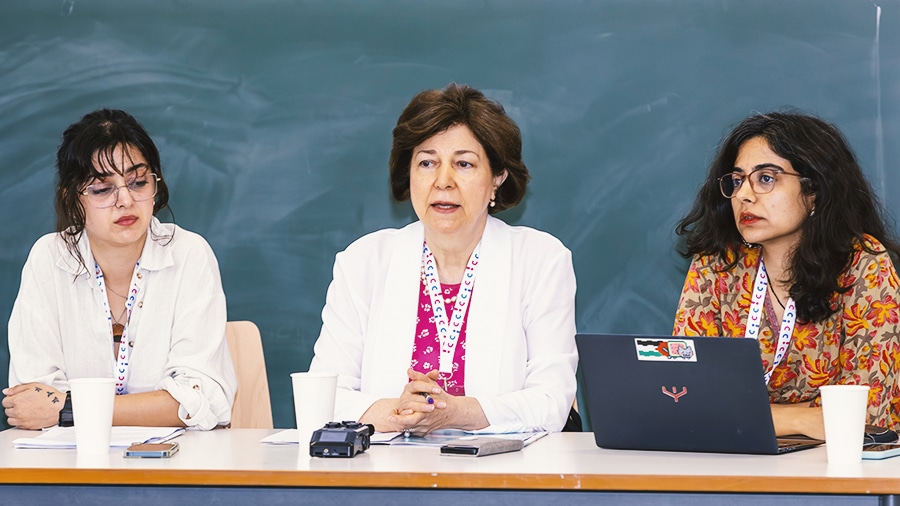Saba Memar
Feminist Thinking and Separatist Strategies
Neda Naji
Abolitionist Feminism in the Current Context of Iranian Society
Moderator: Nayereh Tohidi
This panel delves into feminist strategies and theories within contemporary Iranian society, focusing on feminist separatism and abolitionist feminism.
Saba Memar explores feminist separatism as a radical movement advocating for exclusive, autonomous women-only spaces, particularly prominent during the 1970s second wave of feminism. This separatism aimed to empower women by creating environments free from patriarchal influence, allowing for ideological and institutional autonomy.
Memar emphasizes the role of women-only spaces as a means to address and resist the systemic misogyny ingrained within society. Reflecting on Iran’s current feminist movement, Memar questions the place and effectiveness of such exclusive spaces for advancing women’s rights within broader social activism.
Memar notes that while separatist spaces can facilitate focused feminist discourse and solidarity, they also risk marginalizing women’s voices within the larger activist landscape. Through interviews with activists involved in Iran’s “Zhina Uprising,” Memar investigates whether these separatist spaces are strategic or inevitable responses to pervasive gender biases, exploring the limitations and potential of women-only spaces in contemporary feminist activism.
Neda Naji’s focus on abolitionist feminism applies the theory of prison abolition—championed by scholars like Angela Davis—to Iran’s socio-political landscape. Abolitionist feminism critiques the prison system’s inherent sexism, racial and class biases, and its tendency to criminalize marginalized groups.
Naji highlights how, in Iran, the prison system fails to address the root causes of crime and often perpetuates injustice rather than ensuring societal order. By drawing on interviews with former prisoners, Naji reveals the dehumanizing conditions within Iranian prisons and questions the system’s effectiveness as a tool for maintaining public safety or rehabilitation.
Naji links the expansion of prisons and punitive policies in Iran to neoliberal shifts in state policy, where the government increasingly distances itself from providing essential social services in areas like healthcare, housing, and education. This withdrawal often pushes more vulnerable populations toward criminality, indirectly swelling prison populations.
Naji further argues that prison abolition remains a largely unexplored area within Iranian feminist discourse, with critiques of the prison system mostly confined to political prisoners. This limitation, she notes, may stem from societal acceptance of harsh punitive measures, including the death penalty.
Abolitionist feminism in Iran, therefore, requires a more comprehensive critique of the relationship between the state, the prison system, and society, advocating for fundamental political and economic reforms. By examining the interplay of prisons, state policies, and social dynamics, Naji emphasizes the importance of feminist engagement in challenging the prison system and advocating for alternative justice models that prioritize social equity over punitive measures.



